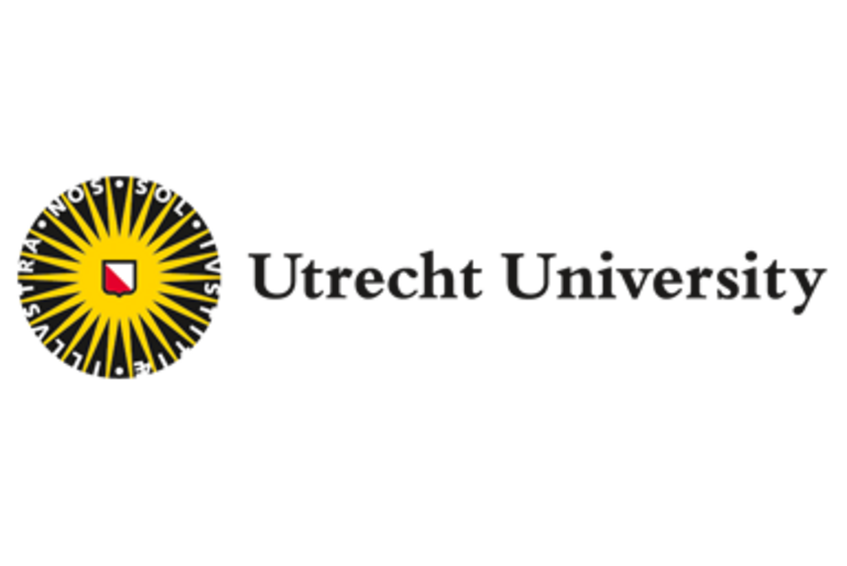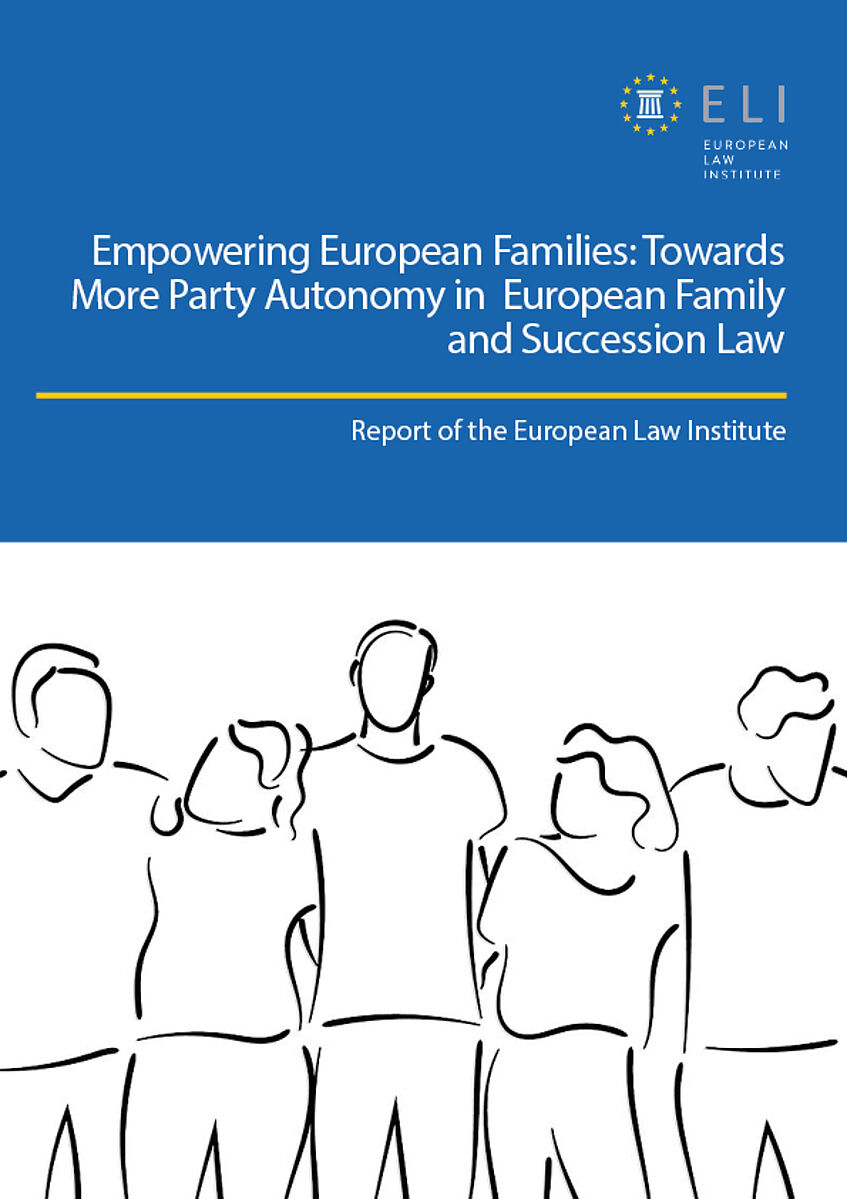ELI Report Empowering European Families: Towards More Party Autonomy in European Family and Succession Law
Quick Facts
Project Type: Report, complemented by Information Sheet and Toolkits for:
Procedure: Regular
Adopted: CD 2015/8 (On Projects)
Project Period: January 2016–2019
Events
An overview of past and upcoming events of this project is available here.
Translations
The following version is available: Turkish (Report, Information Sheet, Married Couples, Registered Partners, Couples in Informal Relationships).
Summary
This project reduces obstacles faced by international families in Europe and aims at facilitating free movement of citizens by developing an ELI Instrument with an information sheet and three toolkits for legal experts advising married couples, registered partners and couples in informal relationships. In particular, the project looked into rules on applicable law, jurisdiction, recognition and enforcement in family law as well as at succession law. It also seeks to promote the use of family mediation in this field.
Background
Empowering European Law Families is a research project led jointly by Katharina Boele-Woelki (Bucerius Law School and Utrecht University), Wendy Schrama (Utrecht University) and Christiane Wendehorst (University of Vienna). It is co-financed by an action grant under the Justice Programme of the European Union and conducted in cooperation with the European Law Institute (ELI) as well as with the support of the Council of the Notariats of the European Union (CNUE).
The project is inspired by the fact that there are currently 16 million international couples in the EU, ie couples where at least one of the partners lives in a country other than his or her country of origin. Despite the fact that EU legislation has achieved far-reaching unification of the rules concerning applicable law, jurisdiction, recognition and enforcement in family and succession law, international couples are still facing a number of problems. These problems have their roots in habitual residence as the dominant connecting factor, but also in the fact that existing EU conflict rules tend to encourage forum shopping and a ‘rush to court’. More notably still, there is often a patchwork of two or three forums and applicable laws even in standard cross-border divorce or separation cases and the approaches taken by the various laws involved are often incompatible with each other.
To a large extent, these problems could be avoided by way of early choice of court and applicable law under existing EU instruments and by agreements on substantive law issues, as far as these are enforceable in the forum State. However, experience shows that only a minor number of international couples make use of the options afforded to them under existing instruments.
Aim
This project aims at reducing obstacles faced by international families and at facilitating free movement of citizens by providing better certainty and predictability of results and reducing the costs of litigation in matters of family and succession law. It also aims at promoting the use of family mediation in the EU.
Outcome
Within the framework of this project, European model dispositions concerning: (a) choice of court; (b) choice of applicable law; and possibly (c) submission to family mediation will be developed, which citizens must be made aware of and get access to whenever a marriage or registered partnership is concluded, a cross-border change of residence is registered and in similar situations. They will be accompanied by simple standard information sheets. In particular in divorce and separation cases, the model dispositions will seek to reduce complexity by offering to the parties a limited set of recommended ‘one-stop shop packages’ (Workstream 1).
As a second step, European model pre-nuptial and post-nuptial agreements for spouses and registered partners (Workstream 2) as well as model cohabitation contracts for informal relationships (Workstream 3) will be developed, which should be enforceable in as many Member States as possible. They will be published together with comparative notes and explanations concerning which provisions are presumably enforceable in which Member States, thus providing important information for international couples and their legal advisers.
Case Studies
For some illustrative examples that the Empowering European Families project seeks to tackle, please click here.
Final Approved Report
The approved Report can be found here. Additionally, three different toolkits for legal advisers have been designed (for married couples; registered partners and couples in informal relationships) with a view of assisting legal professions in advising international couples within the EU. You can also find an information sheet designed for couples themselves highlighting the implications of cross-border relationships and containing practical advice on how to prepare for the first meeting with a lawyer here.
Project Reporters
- Katharina Boele-Woelki
- Wendy Schrama
- Christiane Wendehorst
Other Project Team Members
- Anne Barlow
- Kerstin Bartsch
- Margareta Brattström
- Pedro Carrión Garcia de Parada
- Mark Harper
- Maarit Jänterä-Jareborg
- Matthias Neumayr
- Eve Põtter
- François Tremosa
Advisory Committee Members
- Tim Amos QC
- Josep Ferrer-Riba
- Richard Frimston
- Magdalena Habdas
- Francisco Javier Jiménez Muñoz
- Matthias Klein
- Dieter Martiny
- Vesna Rijavec
- Tone Sverdrup
- Alexandra Thomas
- Alain Laurent Verbeke
Members Consultative Committee
- Elena Bargelli (Chair)
- Elena D'Alessandro
- Samuel Fulli-Lemaire
- Carmen Jerez Delgado
- Hartmut Wicke
National Correspondents
- Anne Barlow
- Christine Bellizzi
- Margareta Brattström
- Sabine Corneloup
- Guilherme de Oliveira
- Nina Dethloff
- Robert Dobrovodsky
- Vincent Egea
- Agnieszka Frąckowiak-Adamska
- Richard Frimston
- Cristina González Beilfuss
- Nikitas Hatzimihail
- Milana Hrusaková
- Maarit Jänterä-Jareborg
- Walter Jean-Baptiste
- Joanna Kosińska-Wiercińska
National Correspondents
- Anette Kronborg
- Thalia Kruger
- Irena Kucina
- Inga Kudinavičiūtė-Michailovienė
- José María Lorenzo Villaverde
- Ingrid Lund-Andersen
- Jane Mair
- Dieter Martiny
- Ines Medić
- Elina Moustaira
- Christoph Müller
- Monica Navarro-Michel
- Michel Neyens
- Barbara Novak
- Ioana Olaru
- Maria Donata Panforti
National Correspondents
- Francesca Portelli
- Branka Rešetar
- Marianne Roth
- Wendy Schrama
- Karin Sein
- Geoffrey Shannon
- Salla Silvola
- Anna Skrjabina
- Laure Stark
- Frederik Swennen
- Orsolya Szeibert
- Velina Todorova
- Pekka Tuunainen
- Triin Uusen-Nacke
- Lenka Westphalova
- Jacek Wierciński




